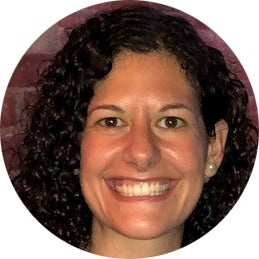Annie Scrimenti (’13)

Director of Public Policy and Advocacy
Association for Molecular Pathology
Meaningfully network whenever the opportunity arises, even with people outside of your sector. You never know what connections someone may have that can be helpful to you in the future.
About Annie
Annie Scrimenti graduated in 2013 with an M.S. in Biomedical Science Policy & Advocacy. Annie works on policy issues that relate to molecular pathology, representing the Association for Molecular Pathology’s (AMP) membership of physicians, doctoral scientists and medical technologists who work in laboratory settings to assist in the diagnosis, monitoring and treatment of genetic conditions, cancers, rare and infectious diseases.
Annie serves as the primary liaison between AMP members and Congress, government agencies and external stakeholders to ensure the maintenance of sound policies pertaining to laboratory operations and diagnostics. Annie’s current portfolio also includes gene patent laws, Medicare coding/pricing, and coverage policy as it relates to molecular pathology.
What strategies did you use to build your network and find job opportunities?
I typically try to make substantive, strong connections at any professional events. This has allowed me to grow my network in a meaningful way. I also cast a very wide net when looking for positions, and utilize my network along with that of my friends and family.
What advice would you give to current or prospective students looking to get into your line of work?
- Meaningfully network whenever the opportunity arises, even with people outside of your sector. You never know what connections someone may have that can be helpful to you in the future.
- Get an internship to see if you truly enjoy the day-to-day work.
- Never burn a bridge – this town is small and you never know where you may land in the policy world. Also, you may end up working with someone 20 years later, so it’s best to always be professional and courteous, even when leaving a less-than-ideal job situation.
If you could go back and change anything about your job search process, what would it be and why?
When I was at Georgetown, I had lived in D.C. for several years prior, with family and a strong community base. At the time, I focused my energy on med school applications. Given this, I did not prioritize an internship or networking.
As a result, it was very difficult to find a job in D.C. in my field shortly after graduation. One thing I would have focused on differently would have been prioritizing a job/internship while taking evening classes. I would have made more of an effort to expand my existing network as well.
